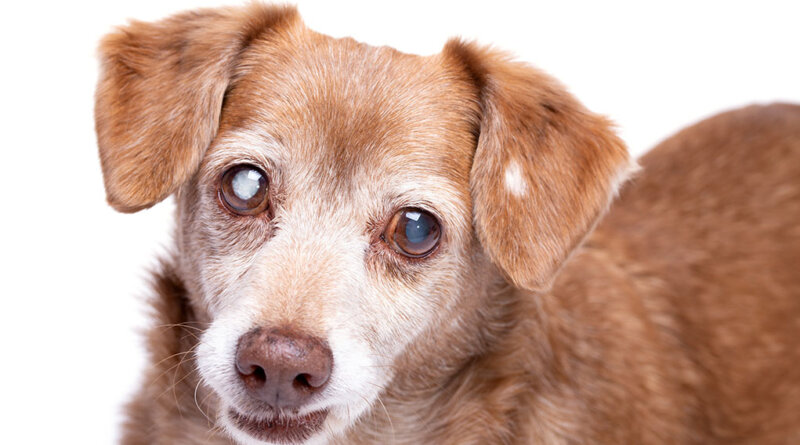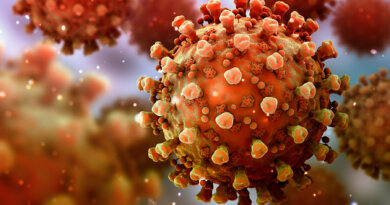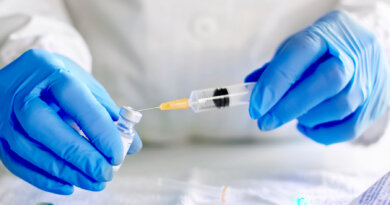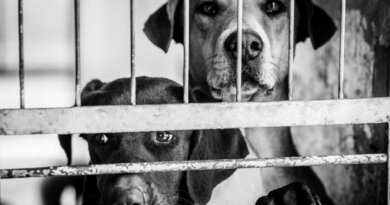Natural Treatment For Cataracts In Dogs – Top Dog Tips
Natural dog cataract treatments are one of the cheaper options for curing cataracts. These natural remedies for cataracts in dogs are accessed easily and conducted at home.
Dogs’ eyes are not much different from human eyes. And with that, they can also develop certain eye conditions as we do.
However, before we go into the home remedies for dog cataracts, let’s tackle first what even is a cataract? What causes this eye condition? How can we treat it? How can we prevent it?
What are Natural Dog Cataract Treatments?
Home remedies for dog cataracts are alternatives for surgery. Surgery for cataracts in dogs can be pretty expensive.
Natural dog cataract treatments can be administered at the comfort of your home. These alternatives can be vitamin supplements, herbs, a healthy diet, and proper care.
However, if not appropriately treated, cataracts in dogs can lead to blindnesGlaucomaucoma.
What is a Cataract?
Moreover, a cataract is the clouding of the lens of the dog’s eye. A good comparison is like the lenses of eyeglasses or a camera. These lenses help us see clearly.
Cataracts can weaken the dog’s eyesight, and in some cases, it can lead to blindness. However, some dogs can also suffer from this for just overnight.
What Causes Cataracts in Dogs?
Cataracts can be caused by plenty of reasons. It is best to know these causes now to help prevent or lessen the chances of happening.
Diabetes
Firstly, diabetes and Cataracts are like a two-punch-combo. About 75% of diabetic dogs tend to experience cataracts.
Cataracts are formed in diabetic dogs due to the disruption of normal lens metabolism. Cataracts in diabetic dogs are developed due to the increased amount of glucose reaching the lens.
Symptoms of Diabetes
The earlier you notice these symptoms, the better. It would be best to go to the vet as soon as possible.
Your pup has a higher chance of living longer when it’s diagnosed early.
- Weight Loss – Even if your dog’s eating normally, weight loss in diabetes can be a problem.
- Increase in Appetite – the lack of insulin makes them think they’re hungry.
- Frequent Urination – also known as polyuria. A discharge of blood sugar causes it into the urine.
- Excessive thirst – dogs that are diabetic tend to pee more, and as a result, they have to drink more.
- Weak Eye Vision – This is where Cataracts come in. A large portion of diabetic dogs will develop cataracts.
Aging
Secondly, aging is of the most common causes of cataracts in dogs. It is a common side effect of aging. Dogs 7 years and above are more likely to develop cataracts than young pups.
This age-related cataract is called Senile Cataracts. It is formed when the lens’ fibers decline.
Hereditary
Thirdly, dog cataracts can also be hereditary. There is a tremendous amount of dog breeds that are prone to cataracts. Some purebred dogs are inclined to have cataracts at an early age.
It can also be as early as birth. It is advised that dogs with a history of cataracts should not be used for breeding.
Dog Breeds Prone to Cataracts
If you’re still in the planning stage of adopting a dog, dog breeds are more prone to dog cataracts. It is essential to research the dog breed thoroughly you’ll want.
Adopting a dog is not an easy task. It will not be cheap, and it will take a lot of work.
Here’s a quick list:
- Boston Terrier
- Silky Terrier
- West Highland White Terrier
- Australian Shepherd
- French Bulldog
- American Staffordshire Terrier
- Labrador Retriever
- Poodle
- Siberian Husky
Eye Trauma
Dogs are active and full of energy. They can easily damage or injure their eyes.
Moreover, no matter how severe the injury is, it can still lead to a cataract. It forms through the lens’ breaking and causing leakage into the surrounding parts.
If you know or feel that your dog has injured his eye, it is best to take him immediately to the vet for further examinations.
Furthermore, it is much better to fight off this eye condition as early as possible to lessen the chances of blindness.
Best Natural Treatments for Dog Cataracts
If you have a tight budget and can’t afford surgeries for your pups, luckily for you, there are now natural remedies that can help with dog cataracts.
1. Herbs as a Natural Remedy for Dog Cataracts
Of course, the all-natural herbs come in to save us again. There are now herbal medications that can help slow the progression of dog cataracts.
One of the best herbs for eye conditions is Bilberries. Bilberries also called “the vision herb” or the “European Blueberry,” help prevent cataract formations.
It can also affect blood sugar levels to help diabetic dogs. However, it would be best to consult with your doc before giving them anything for diabetes.
Moreover, other herbs can help with dog eye cataracts:
- Burdock
- Rosemary
- Meadowsweet
2. Care and Grooming as a Home Remedy
One of the most accessible natural dog cataract treatments is taking care of your dog’s physical appearance. This is where dog grooming can come in handy.
Dog’s coat or fur can also be a cause of irritation. Trimming the hair around their eyes can lessen eye irritation and other possible infections.
As the pet owner, you have the responsibility to check on their eyes. Do not expose them to dust, smoke, or other chemicals that can damage their eyes even more.
Moreover, eyewashes to help your dog’s eyes clean are another option. An eyewash that is made with celandine tea can help soothe the eye.
3. Diet
If you’re looking to prevent cataracts, having a balanced diet can help. Preventing obesity can lower the chances of diabetic problems for dogs.
Feeding your pup with low carbohydrates is a great way to start as carbs can increase glucose, leading to diabetes.
A diet with antioxidants can fight off possible cataracts and even cancer. Moreover, having a proper diet isn’t always enough. A good thing to include is exercise.
Moreover, giving them a nutritional diet is not enough. The most important thing about these diets is being consistent.
Starting with a high-fiber diet is the way to go.
Homecooking is not recommended for a diabetic dog as its nutrients tend to be inconsistent.
4. Vitamins and Minerals for Dog Cataracts
Furthermore, giving your pup proper vitamin supplements can be an excellent natural remedy for dog cataracts. These vitamins have antioxidants that can help with cataracts and vision.
Vitamin C
Vitamin C is used to help improve vision. Commonly found in fruits or leafy vegetables. It can help with cognitive aging.
However, too much of this can cause diarrhea or excessive urination.
Vitamin A
Also found in leafy vegetables, carrots, or fish oil. Vitamin A is used to act as a shield for the eyes. Lack of Vitamin A can lead to eye problems and slow growth.
Vitamin A overdose can lead to bone deformation, diarrhea, and vomiting.
Vitamin E
This vitamin helps treat the damaged tissue that comes with aging. It can also help with boosting the dog’s immune system.
Unlike the others, overdose in Vitamin E has no harm. It can also help slow aging.
5. Carrots for Cataract Treatments
Carrots are one of the best alternatives for a natural remedy for dog cataracts, and they can also be a great dog treat.
These are filled with antioxidants alpha-carotene and beta-carotene transformed into Vitamin A, which is excellent for your dog’s vision and eyes overall.
6. Eye Drops for Dogs
Furthermore, if surgery is not one of your options, buying eye drops recommended by your vet can help.
Remember to consult with your vets in making decisions like these, as they know what kind of eye drops are best for your pup.
Look for eye drops with lanosterol, as it helps dissolve proteins that form cataracts.
There are now few studies that indicate that Lanosterol-Derived Eye Drops can dissolve cataracts. These new studies about eye drop help because surgery is too expensive.
Commonly Asked Questions About Dog Cataracts
Can Cataracts come back?
After surgery, dog cataracts will not return. When they undergo surgery, it involves the removal of the natural lens of the eyes and replacing it with an artificial one.
Do Cataracts Hurt My Dog?
Yes, and No. The cataract itself does not hurt your dogs. However, it can cause disorientation when it’s developed quickly.
Moreover, cataracts can lead to inflammation that can cause pain or discomfort to your dogs. In other cases, it can also leaGlaucomaucoma, which can cause a lot of pain.
Dog Cataract Surgery Cost
Cataract surgery is very costly, and that’s why pet owners are looking for natural treatment for cataracts in dogs.
The average cost for a dog cataract surgery ranges between $2,700 and $4,000. However, this still varies to your location.
This already includes the examination, surgery, anesthesia, ultrasound, ERG, hospitalization, and checkups.
Having Pet Insurance before the diagnosis can help lessen the expenses in times like these. It would be best to sign up your pet at a young age. Pet insurance can reduce the cost of unexpected expenses.
Can Dogs Live With Cataracts?
Most dogs live with cataracts because it is not a fatal issue. But of course, there will be struggle and confusion.
However, to help prevent blindness, your dog must undergo surgery. As the dog owner, you must act as soon as you see cataract symptoms to help prevent and get the treatment they need.
What Happen if Cataracts are not Treated?
Dog Cataracts that go untreated lead to blindness. Eventually, the cataract will block light from entering your dog’s eyes.
Moreover, dog cataracts can also leaGlaucomaucoma. Glaucoma is the build-up of fluid and pressure in the eyes. The pressure causes damage to the optic nerve and loss of peripheral vision.
There are two types of caGlaucomaucoma. Firstly, the Primary Open Angle Glaucoma. And secondly, Primary Closed Angle Glaucoma.
Primary Open Angle Glaucoma (POAG)
A rare type of caGlaucomaucoma that is similaGlaucomaucoma in humans. POAG includes progressive narrowing of the iridocorneal angle.
Pressure builds up and damages the structure of the eye when the accumulation of debris decreases in pore size.
Symptoms of POAG:
- Pupil Dilation
- Eye Discomfort
- Peripheral Vision Loss
- Luxation of Eye Lens
- Redness in the White of the Eye
- Nausea
- Swollen Cornea
Primary Closed Angle Glaucoma (PCAG)
It is the most common type of caGlaucomaucoma. Affecting the iridocorneal angle created by the iris and cornea, Primary Closed Angle Glaucoma can be present as early as birth but can also be developed with age.
Symptoms of PCAG
- Lack of focus
- Eye discomfort
- Complete loss of vision
- Swollen Cornea
- Attacks of congestion in the eye
How do I take care of my Dog after Cataract Surgery?
A protective collar is necessary for your dog as their eyes are sensitive after surgery. The average healing period after cataract surgery is two weeks.
Dog collars will help prevent them from rubbing or scratching their eyes. Moreover, vets will be providing certain eye drops for dogs to keep their eyes moisturized and heal properly.
A clean and peaceful home is needed for your dog after the surgery. It will help them relax and avoid stress or possible anxiety.
Natural Dog Cataract Treatments Summary
Cataract in dogs is quite an expensive issue. Pet owners are now looking for cheap and safe alternatives.
However, natural dog cataract treatments will not 100% cure the cataract. Home remedies for dog cataracts won’t be able to dissolve it. But it can help them prevent and slow down the progress of cataracts.
Natural remedies for cataracts in dogs are herbs, vitamins and minerals, diet, eyedrops, and care.
Always be on the lookout for possible symptoms of cataracts. The earlier you see these symptoms, the more chances to get reversed or prevented.
READ NEXT: 9 List of Dog Eye Problems
Related










